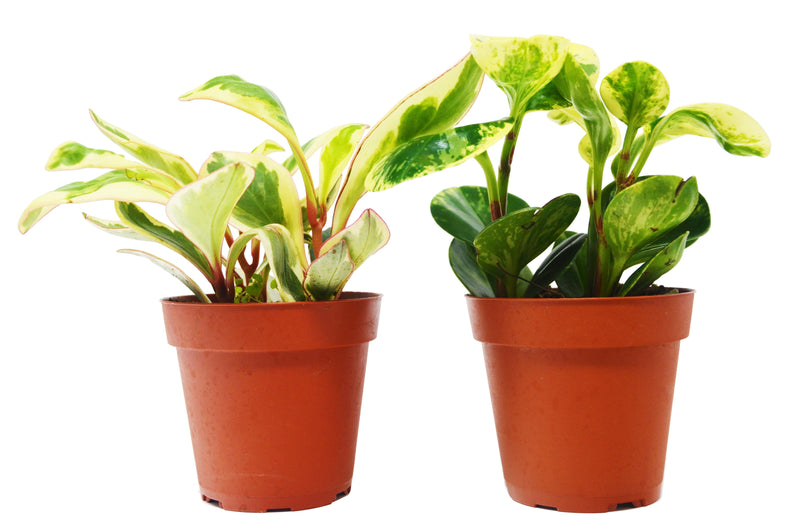2 Peperomia Plants Variety Pack
Couldn't load pickup availability
Description: Peperomia plants are diverse in leaf shape, color, and texture, offering a wide range of options for indoor gardeners. They are appreciated for their ornamental foliage, with some varieties featuring patterns, bright colors, or succulent-like qualities. Here's a care guide template for Peperomia plants:
🌿 Botanical Name: Peperomia
🐾 Pet Warning: Peperomias are generally non-toxic to cats and dogs, making them a safe choice for households with pets.
💧 Care Level: Easy. Peperomias are known for their ease of care, making them suitable for beginners or those looking for low-maintenance houseplants.
📏 Approximate Size: Most Peperomia species are compact and small, typically growing no more than 12 inches (30 cm) tall and wide.
🌞 Light: Prefers bright, indirect light but can tolerate lower light conditions. Variegated varieties may require more light to maintain their patterns.
💧 Water: Allow the topsoil to dry out between waterings. Peperomias have succulent characteristics, meaning they store water in their leaves and prefer not to be overwatered.
💦 Humidity: Tolerates average indoor humidity but appreciates higher humidity levels. Mist occasionally or place on a pebble tray if the air is very dry.
🌡️ Temperature: Ideal temperatures range from 65°F to 75°F (18°C to 24°C). Avoid cold drafts and temperatures below 50°F (10°C).
❄️ Hardiness: Not frost-tolerant and best grown as indoor plants in most climates.
🌱 Fertilizing: Fertilize lightly every month during the growing season with a diluted, balanced fertilizer. Reduce feeding in the winter months.
🔄 Re-potting: Re-pot only when the plant has outgrown its pot, typically every 2 to 3 years. Use a well-draining potting mix and a pot with good drainage.
🌱 Propagation: Easily propagated by leaf cuttings or stem cuttings. Place in water or moist soil until roots develop, then plant in potting soil.


2 Peperomia Plants Variety Pack

